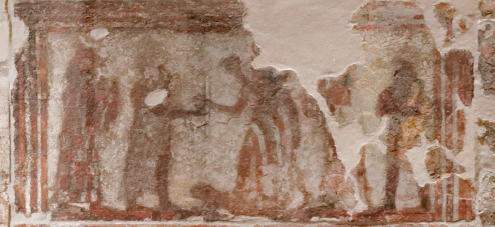
- This event has passed.
Creating the Cult of a Goddess: Politics and Religion at Mari in the Old Babylonian Period
Los Angeles, CA 90024 United States + Google Map

Traces of ancient Mesopotamian religion have been discovered by archaeologists working across the modern Middle East—temples and other religious structures, worn by time; small fragments of once-opulent cult statues and temple furnishings; clay tablets inscribed with stories of and hymns to the gods; and mundane records of administrators, concerned with tracking the many cults that could inhabit a single city. While the Assyriologist A. Leo Oppenheim cautioned that these remains were capable of revealing “only a dim reflection” of Mesopotamian religious practice, and should therefore not be used to write a history of Mesopotamian religion, I contend that these mundane remains in fact offer rich insights into the pervasive and dynamic nature of religion in Mesopotamian history.
Offering a critical re-examination of administrative records from the ancient city of Mari, the presentation examines a body of texts that refer to a goddess by the name of Ishtar Irradan along with a pair of ritual texts, all found in the city’s palace archives. While the presentation uses this evidence to construct a lively story of cultic innovation and political ideology during a period of foreign rule in ca. 1800 BCE, the ideas and methods developed here have important implications for the classification of ritual texts and the study of Mesopotamian literature as well as modern approaches to the study of polytheism and “divine multiplicity.” Finally, the presentation considers the value of interdisciplinary approaches to the study of Mesopotamian history, suggesting that the field of Assyriology and the training of Assyriologists can and needs to be driven forward by the engagement with the ancient material world—of which texts remain one crucial component.

Dr. Elizabeth Knott
Postdoctoral Associate, Babylonian Collection, Yale University Research Affiliate, Institute for the Study of the Ancient World, NYU

